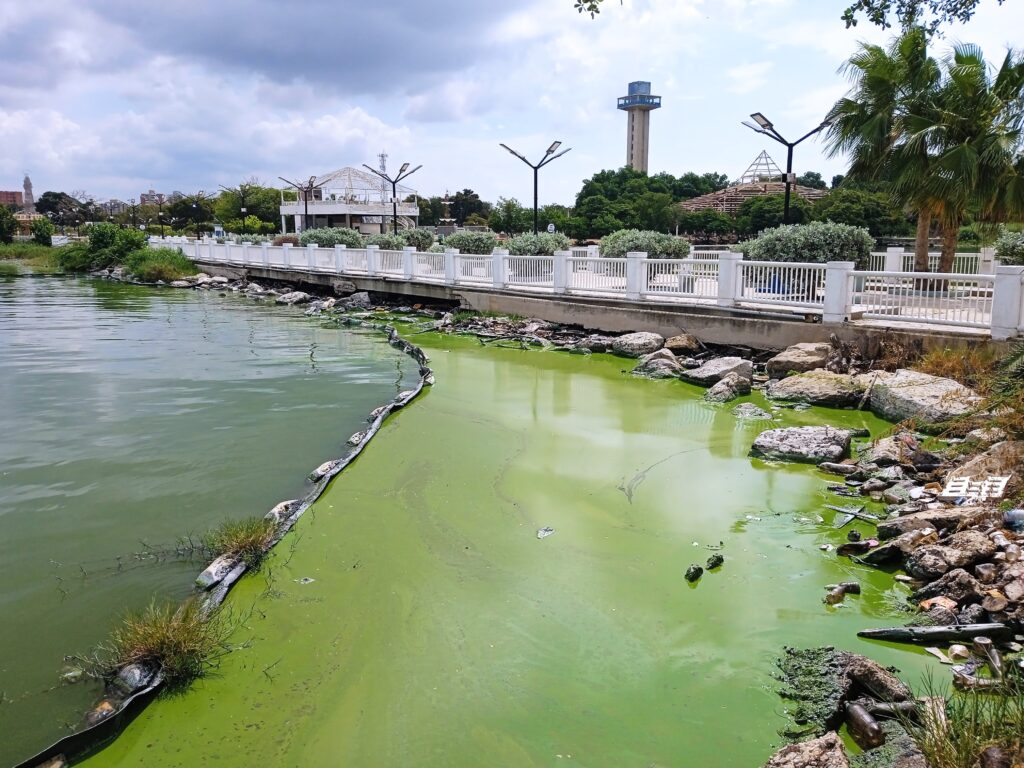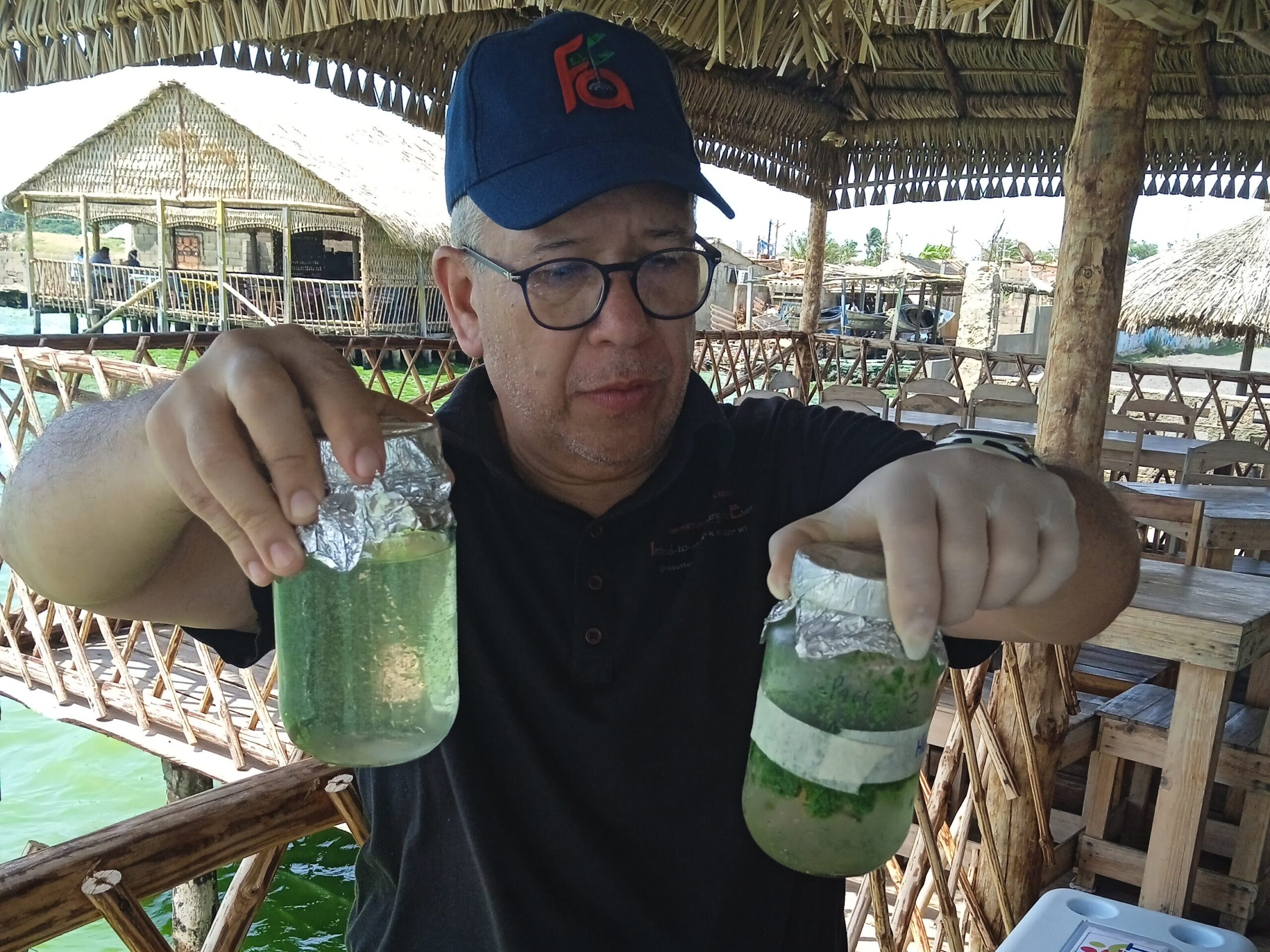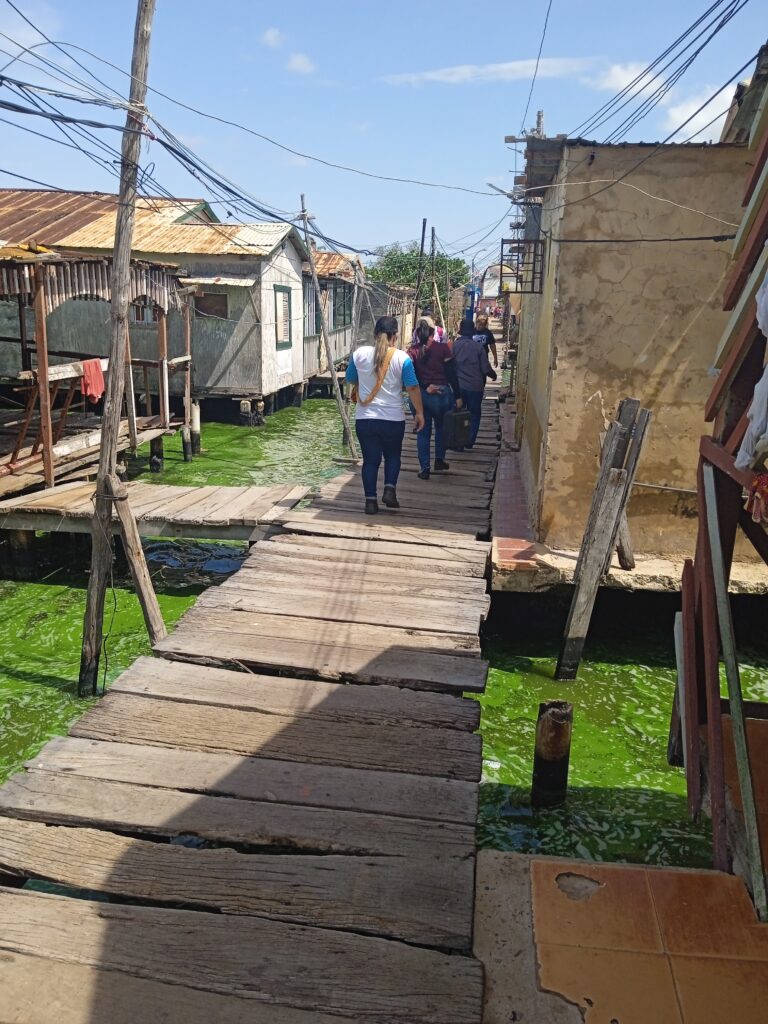The Oldest Lake in South America is Dying
After the lemma epidemic of previous years, a new pest (verdin) is plaguing Venezuela's Lake Maracaibo. The reason: oil leaks and human activity


They call it verdín. As seen in the news and social media, it is a thick greenish film covering part of South America’s largest lake. It can be seen from the coastal boulevard of downtown Maracaibo and from the town of Santa Rosa de Agua, where people are complaining about an intense stench.
It’s a photosynthetic organism, and it is growing fast. Biologist Lenín Parra, from NGO X Lago de Maracaibo, explains that verdín is a cyanobacteria, similar to some species of seaweed, that is the product of the eutrophication: a dysfunction of a water ecosystem by excess nutrients and lack of oxygen in the lake.

This green biomass blocks light when floating on the water’s surface, stopping the biological activity of what remains of the underwater ecosystem, and it is also releasing a toxin in the lake, microcystin, that cannot be extracted by physical means and will impact the animals and the human use of the lake’s waters.
By accumulating on the trash and plastics floating along the coastline, the verdin is causing a greenhouse effect that is killing the seaweed that feeds the local fish and shrimp.
Verdín is aggressive and competitive, can tolerate oil, and is displacing local species just like Unomia stolonifera in Mochima National Park, in Sucre.
This is not the first time that Lake Maracaibo is suffering a strong episode of eutrophication: decades of oil extraction, industrial production, agriculture and human waste have turned the Lake’s basin—a big bag of fresh water with only a narrow exit to the Caribbean sea—into an environmental bomb. But this time, all the factors impacting the problem are more numerous and more important. Lenín Parra says that “cattle raising, shrimp and palm farming, lack of proper disposal of solid waste and the performance loss of water treatment plants, plus deforestation upriver in the basin and all the sediments coming down Venezuelan and Colombian rivers that discharge on the lake, add up to to the favorable conditions for verdin.”

Parra, like other experts, thinks that the proliferation of accidents in the oil and petrochemical industry, which is leaking more oil and waste on the water bodies, is making the problem worse. This is how, because of us, a landscape formed 20 million years ago—in fact, it’s the second oldest lake on the planet—has entered the general disturbances of climate change in a very poor condition.
Enclosed by land in a warm region, Lake Maracaibo is turning into a cauldron that instead of fresh water, fish, navigation routes and pleasure, is providing pollution and death. How to solve this? Restoring the oil infrastructure, keeping it in good shape, and changing the extractivist model for one where preserving the environment has more economic and social benefits than its destructive counterparts. One in which Lake Maracaibo is recovered to serve as a source of ecological tours, sustainable urban development, and green energy production.
Caracas Chronicles is 100% reader-supported.
We’ve been able to hang on for 22 years in one of the craziest media landscapes in the world. We’ve seen different media outlets in Venezuela (and abroad) closing shop, something we’re looking to avoid at all costs. Your collaboration goes a long way in helping us weather the storm.
Donate





